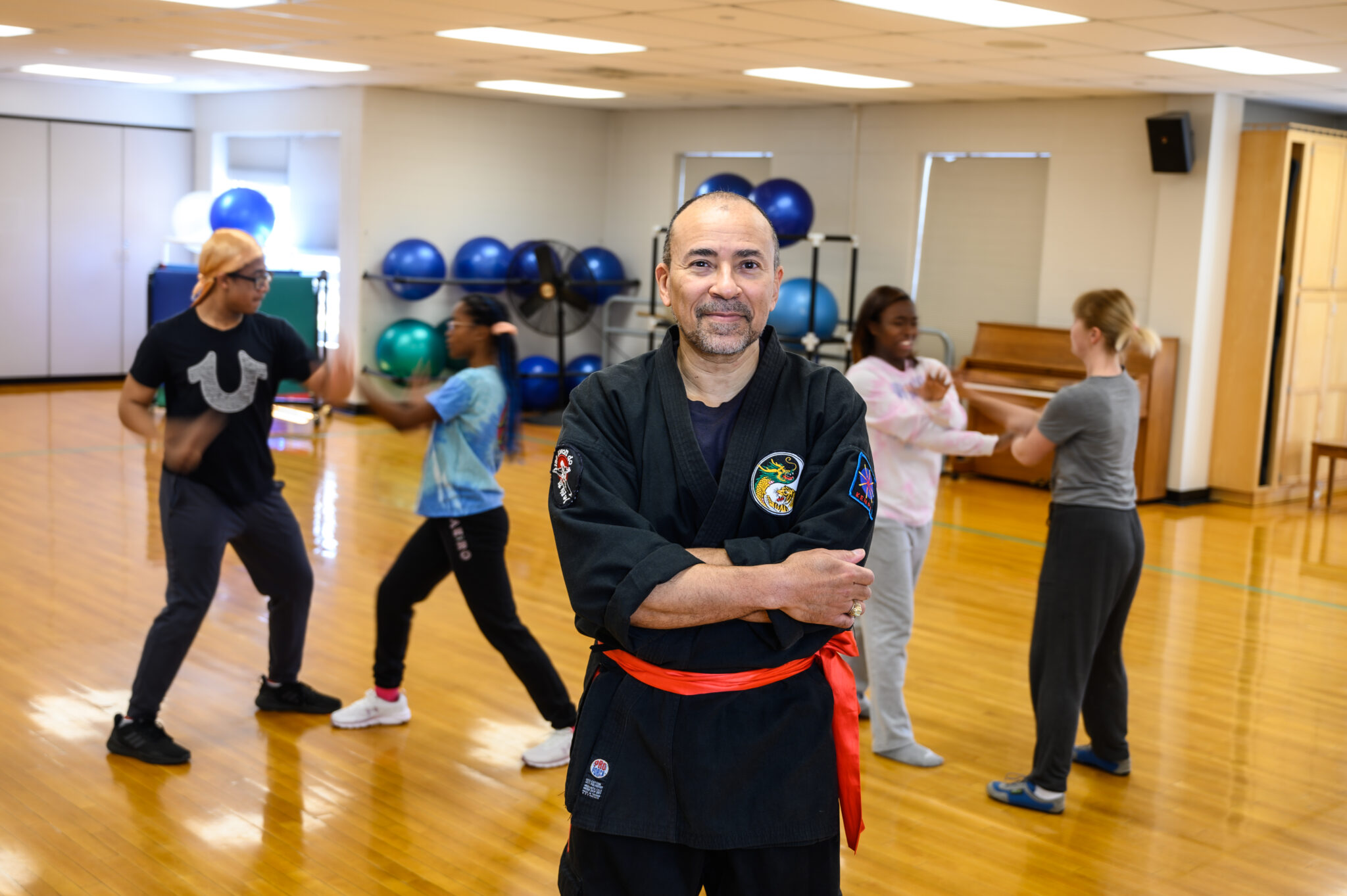“I would be incredibly honored to call you ‘daughter’ so someone who doesn’t see your value is missing it,” Dr. José Pimienta-Bey, chair of the African and African American Studies department, said to one of his students. Throughout the semester, the contempt she had for her father had made its way into class conversations and negatively affected the way she adapted to school overall. With his background in both history and psychology, Pimienta-Bey supported her and encouraged her to not only go to counseling, but also to have a conversation with her father. When that conversation was unsuccessful, Pimienta-Bey continued to speak affirming words to this student when she arrived to class or during office hours. He knew from his training that as an authority figure, his affirmation would elevate her sense of value and confidence. But he knew from his heart that lifting students up is what he is called to do.
“Many students come from challenged backgrounds,” Pimienta-Bey said of Berea’s students. “Students come in who don’t have positive role models—parents or male figures. I was quite aware of that when I came to Berea.”
It’s why he has no problem taking extra care with those students who need it and seek him out as a trusted source of support and encouragement. It’s also why he is part of the Models and Mentors class he leads along with other Berea College faculty. The course focuses on mentorship of Berea’s young men specifically.
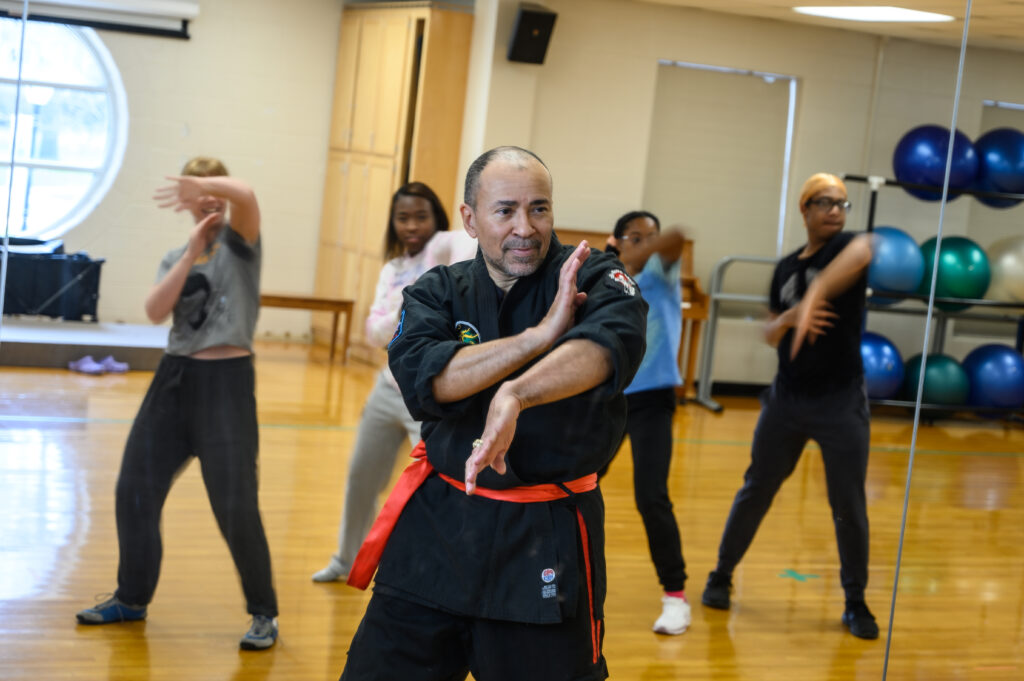
“This is not just a class; this is literally life,” Pimienta-Bey said of the course. “We talk about what will happen when they leave. The class is not just interesting facts and information that is relevant only to the course. I am trying to help these young men more effectively navigate a challenging world with as much preparation as possible for what awaits them—bad and good.”
A culture of support
Beyond free tuition and a radically inclusive history, one thing that sets Berea apart from other colleges is its extensive levels of support to anticipate and meet the needs of the population which the College serves. Between low-income status and 67 percent of Berea’s students being first-generation college students, coming to college and navigating its ups and downs can be very challenging. Berea offers a plethora of resources, programs and courses to assist every student in traversing their new landscape. But one of the best resources are the people—faculty and staff—who come alongside students and help boost them to reach their highest success.
“I do know that some faculty colleagues sometimes really go the extra mile,” said Dr. Steve Gowler, Chester D. Tripp Chair in Humanities and General Studies professor. “I know that there are Berea College faculty members who are very much alongside students as friends and support them in times of serious problems.”
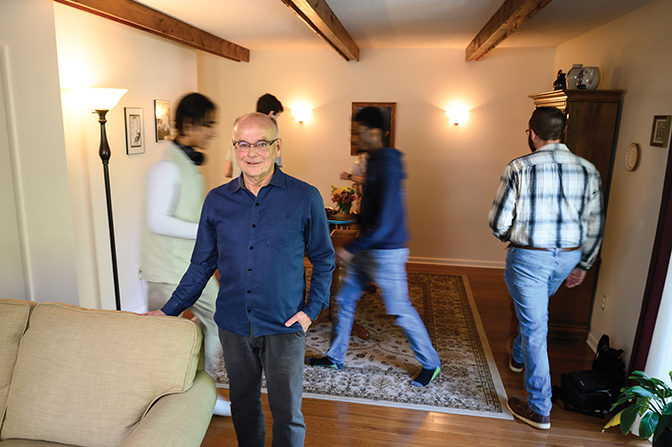
But Gowler understands that support doesn’t have to be monumental to be life changing. As a matter of fact, recently Gowler received an email from a student he had never had in class but encountered nearly 30 years ago when he was working as a librarian at Hutchins Library. He had chanced upon this student reading a book of Robert Frost poems and chatted with him about Frost’s poetry and how he interpreted it. All these years later, the student’s message told Gowler how that conversation and poem changed the way he thought about liberal arts education and all sorts of things.
“That was an enlightening moment for me,” Gowler said about the email. “It’s about not knowing what will sink in and make a difference in the way someone perceives the world.”
Gowler has continued making impacts on students for decades and was mentioned as one of nearly a dozen professors and a supervisor who made an impact on the life of an alumnus in a recent social media post.
“To be honest, Berea is the type of place where multiple faculty and staff made an impact on my life,” Ricky Kirk ’99 wrote in a recent post on Berea’s alumni Facebook page. “I think it is rare to find that one faculty or staff member that makes an impression on your life but to have so many, it speaks volumes about Berea. I am who I am today due in large part to these individuals. I’m grateful for each one of them!”
Outside the classroom
One of the ways Gowler has intentionally made those unique connections is by inviting students to his house for at least one class each semester. A practice he remembered fondly from one of his college professors, Gowler welcomes his students to his home for a meal and class meeting. While sitting in his living room, eating a simple meal and conversing in a different, relaxed atmosphere, Gowler said he’s always amazed at how certain students open up and flourish in that setting.
“The way I think about it is trying to create the conditions in which folks can have the fullest, most satisfying experience they can,” Gowler said. “I try to create that atmosphere, but what happens is about the student, not about me. If they are ready for a change and need a transformation, I feel like that is something that comes from within students. The community can do a lot to show support for them, and some will find their way.”
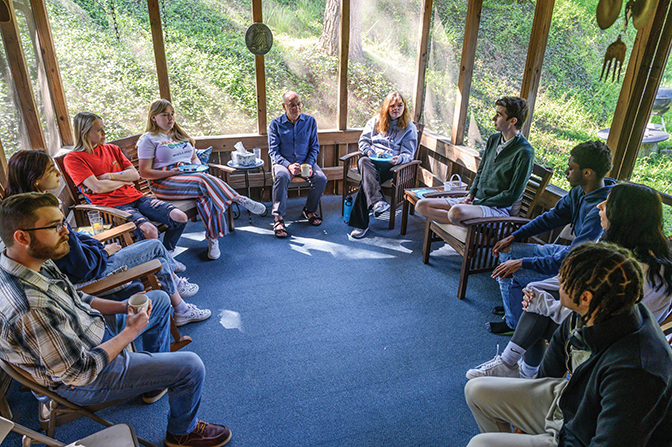
Interacting with students in a different environment often makes connection more impactful. Gowler says one of his favorite experiences is traveling with students. He has traveled to Europe seven times and has taken a half dozen trips to Washington, D.C., with students. Whether it’s three days or an entire month, Gowler said these trips have been meaningful experiences for him and his students.
Similarly, Pimienta-Bey also has traveled out of the country with students. He and computer science professor, Dr. Jan Pearce, studied capoeira, an Afro-Brazilian mix of martial arts and dance, in Brazil and tango in Argentina. Pimienta-Bey has studied martial arts since he was 17 years old, and this trip combined many of his passions, allowing him to share aspects of his teaching, martial arts and spiritual background and insights with his students.
“It was an incredible opportunity to take students to study capoeira with a master teacher (called a ‘mestre’) in Brazil who also emphasized this idea that there is more to capoeira than just fighting,” he said. “You can apply this to your studies as a student and see this as grounding you spiritually and ethically. That was a trip that was very powerful.”
Pimienta-Bey also is the faculty liaison for a martial arts student organization. He has trained in many martial arts styles and says this club is a place to help students gain a greater sense of confidence, inner courage, focus and discipline. One specific form he teaches is Wing Chun, a close-quarters form of self-defense invented 500 years ago by a Chinese Buddhist nun.
“[Wing Chun] has helped young women and men, but especially women, who hadn’t initially had the confidence to defend themselves or even to walk across campus,” Pimienta-Bey said. “It allows them to train and learn as young women and develop mentally, physically and emotionally.”
Something special
“This role is outside of my responsibility as a faculty member, but it is my responsibility as a model and mentor,” he continued, “because I had models and mentors that told me how to deal with challenges in the world, and I saw those who did not have models and mentors and the route they took. My responsibility is not just as an academic. I am supposed to be a scholar-activist—someone who engages in this sort of mentoring—teaching and empowering students outside of the classroom.”
One thing I do think can be said of Berea students is they pull for each other and support each other.
Dr. Steve Growler
It’s no wonder Pimienta-Bey considers Berea’s students special because of their commitment to social justice. “Most students at Berea unequivocally tend to come in with a greater sense of social justice or empathy or interest in making the world a better place,” he said. “Not all, but many or most of our students are more attuned to the need to affect change for the better—that idea that humanity needs greater care, and we need to be more conscious of what is going on.”
“Our students are great human beings,” Gowler agreed. “Of course, I’d say that wherever I was. But I’m totally fascinated, from the beginning to the present, of the basic values and commitments and what [the College] stands for. Many of our students are driven to achieve all they can, but not to the detriment of someone else. And that kind of listening to one another and speaking on behalf and being there for one another—one thing that I do think can be said of Berea students is they pull for each other and support each other.”
And that care and support are modeled for students by faculty and staff members across campus. Feeling listened to, accepted and challenged to be their best is what allows students to feel that much-needed sense of belonging—and ultimately to find success on their journey through and after Berea.
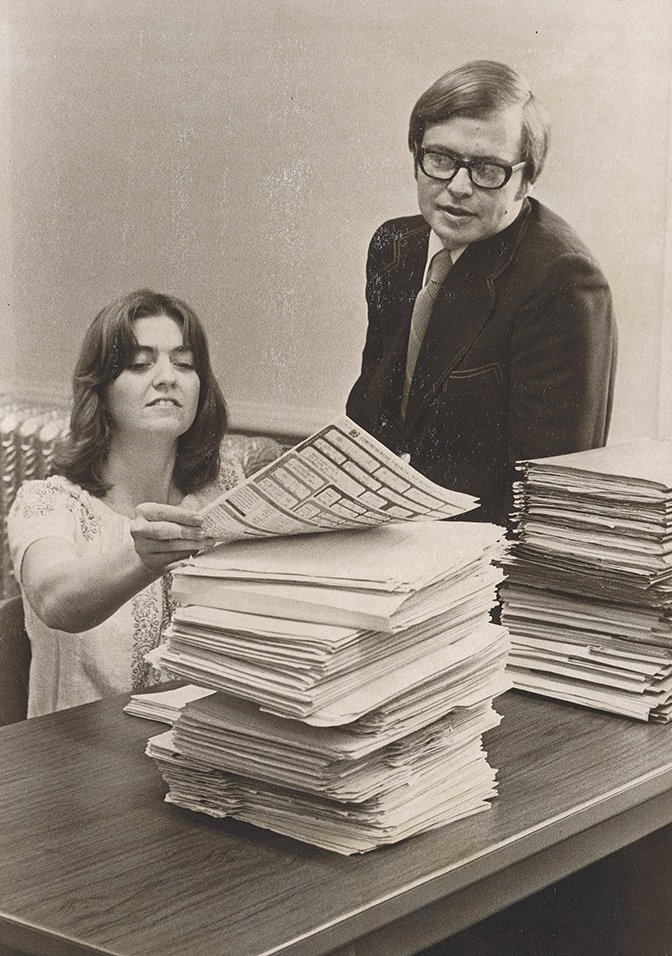
One staff member’s advice made a 40-year difference in the lives of two students.


